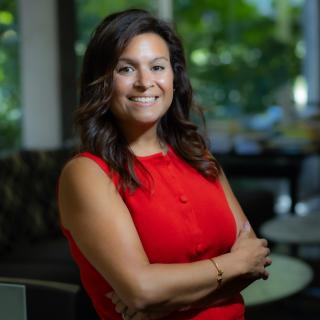Boosting Language and Literacy Experiences in K-3 for DLLs
April 6, 2017
Attending high-quality preschool yields significant academic benefits for the rising population of young dual language learners (DLLs) in the US. Research has indicated that when Hispanic children attend high-quality preschool centers, their kindergarten readiness skills significantly exceed those of children who did not attend. The recent National Academies of Sciences, Engineering and Medicine Consensus Report (2017) describes effectively educating children who are learning English as their second language as “a national challenge with consequences both for individuals and for American society” and recommends new teaching practice and policies. The federal Every Student Succeeds Act under Title I also enables states to implement high-quality preschool programs that can benefit all children, but particularly DLLs.
States’ preschool agencies show signs of an increased understanding of the need to promote academic success for DLLs in preschool, by including DLL specific provisions in their standards, Core Competency Frameworks, and Quality Rating Improvement Systems (QRIS). In this way, states are establishing systemic approaches to offering DLLs support, while making intentional efforts to build language with specific focus on vocabulary growth, use of the home language as a strategy and engaging families before children reach kindergarten.
However, what should also be considered is the importance of providing this same level of attention and action in kindergarten through third grade, as gains made in pre-K are better built upon when the wider system of K-3 aligns with it. Alignment includes practices fostering both academic skills and social emotional skills in developmentally appropriate ways. For DLLs in particular, this dual approach–addressing academic and social emotional growth–is crucial. Their language acquisition is not completed during the preschool years and, more importantly, should not be limited to minimal proficiency. The goal is to have DLLs able to fully communicate both orally and in writing with native speaking peers and to build, understand and explore broad conceptual knowledge. That requires strengthening practices in K-3 that will encourage their progress.
In a recent study, NIEER researchers observed school day structure and activities for children in kindergarten through Grade Three in 20 New Jersey school districts. Using Edusnap, a tool that focuses on how much time children spend on a unit of study, we measured how much time the children spent in various learning activities. For example, we found that children spent 44 percent of their school day in whole group learning and another five percent was spent in small group–yet neither setting provides maximal opportunities for children to learn and practice collaboration with a teacher or classmates. Similarly, only five percent of time was spent in group work, when children can work collaboratively. In addition, our research assessed the amount of time children spent engaging in various content areas. Looking specifically at language and literacy skills, the majority of time–13 minutes–was spent identifying words, phonics, and word work. Less than five minutes, on average, was spent learning vocabulary. Teachers spent about 11 minutes, on average, reading to children, and seven minutes was spent on reading comprehension skills.
Implications of this study for DLLs are significant. The research is clear on how important each of these language and literacy activities is for DLLs–especially in preschool. Yet, this does not mean that language learning should be neglected after children turn five. The key point is that while discreet learning of skills is important, crucial language building and development of conceptual knowledge takes time.
As states draft plans to implement ESSA, these elements warrant priority and attention. In short, the only way to improve later outcomes is to ensure children have both the vocabulary needed to communicate and a deeper understanding of concepts about the world, their own lives, and other areas of knowledge. Specifically, in the birth through eight continuum that defines early childhood, practices that can directly benefit DLLs and should be integral parts of early elementary grades include:
- Singing songs, nursery rhymes, and finger plays
- Having multiple opportunities in a day to listen to books read by a teacher followed by intentional conversations about the books read
- Highlighting new vocabulary words during book reading and throughout the day in intentional ways across the curriculum
- Using various content areas (math, science, language arts, technology) to build background knowledge and link them to personal lives and literature
- Having back-and-forth informal conversations with teachers about topics that are relevant/important to children’s own lives that is intentionally focused on building vocabulary
- Having opportunities to have informal conversations with peers
Today, important practices that can boost language development for DLLs are seldom given the time required to be effective in the K-3 classrooms. Instead children are spending too much time on drills such as word-id that are ultimately mastered through repetition and practice. There is much at stake. For those children who benefited from high-quality preschool, current K-3 practices at best are failing to boost their skills and at worse, could erode those pre-K gains.
Dr. Figueras-Daniel is an Assistant Research Professor at the National Institute for Early Education. Her research interests include classroom practices and professional development, dual language learners and classroom practices that support dual language acquisition, and measurement of quality in multicultural contexts. She has contributed extensively to NIEER’s research on DLLs and classroom quality.
The Authors
Dr. Figueras-Daniel was awarded a Young Scholars Program grant from the Foundation for Child Development to investigate coaching and professional development of Latina preschool teachers working with DLLs. At NIEER, she leads this study as well a project to develop a Latina leadership pipeline in ECE.
About NIEER
The National Institute for Early Education Research (NIEER) at the Graduate School of Education, Rutgers University, New Brunswick, NJ, conducts and disseminates independent research and analysis to inform early childhood education policy.

